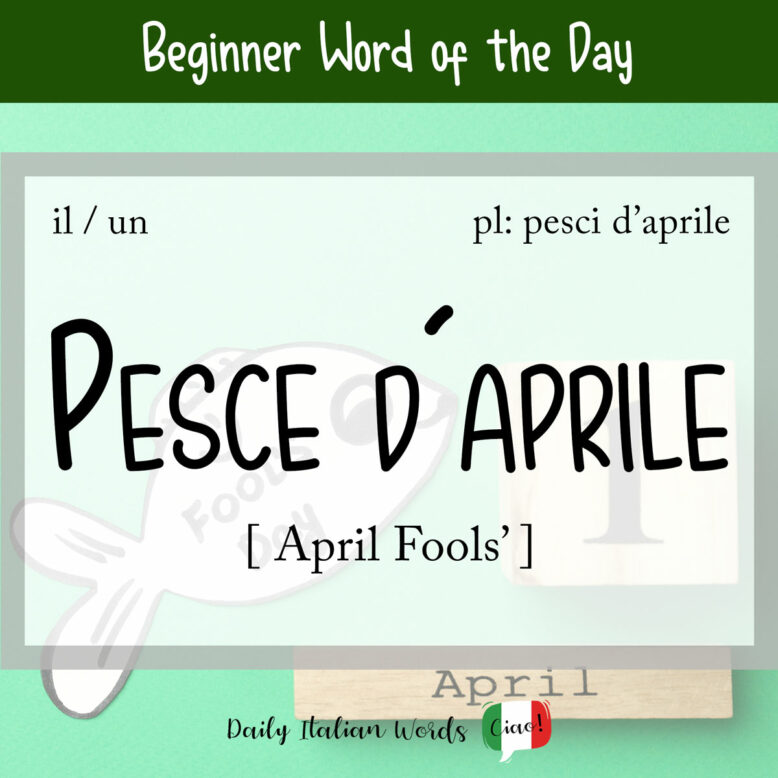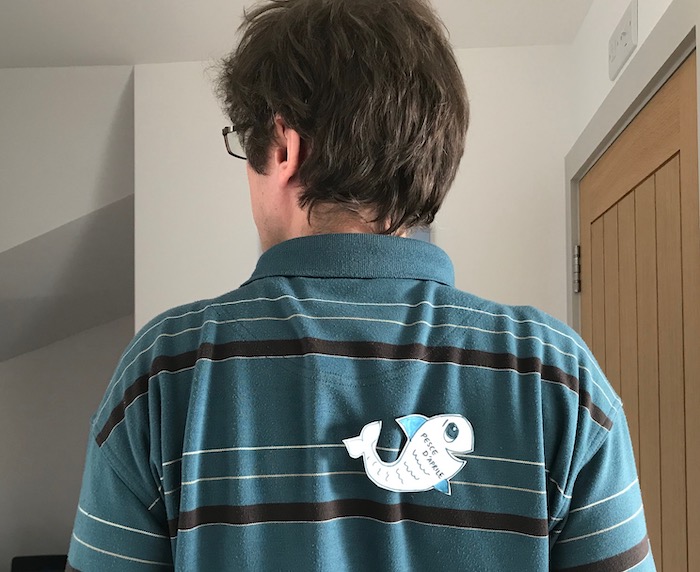April Fools’ Day is known in Italian as pesce d’aprile which literally translates as April’s fish. Want to find out more about how April 1st is celebrated in Italy? Then read on!

Similar to other countries where April Fools’ is celebrated, pesce d’aprile involves playing harmless pranks on friends and family. These pranks vary in nature, from simple practical jokes to much more elaborate false stories published by the media.
Buon pesce d’aprile!
Happy April Fools’ Day!
In Italy however, the most popular practical joke involves attaching a paper fish (un pesciolino di carta) to an unsuspecting victim’s back without being noticed … or being branded with a fish yourself! Although the tradition is somewhat antiquated, it is still very popular amongst school children (not to mention sneaky Canadian wives who enjoy playing tricks on their Italian husbands)!

Did you know that…?
The April’s fish tradition is celebrated in other countries besides Italy. In France and the French-speaking areas of Switzerland and Canada, it is known as poisson d’Avril whereas in Belgium it is april vis.
The exact origin of the pesce d’aprile tradition is unknown, although several theories of varying credibility have been put forward over the years:
1. The most plausible theory can be traced back to 16th century France. At the time, the New Year was celebrated between March 25th and April 1st, so when New Year’s Day was moved back to January 1st following the adoption of the Gregorian calendar, people would give each other empty packages on April 1st to jokingly allude to the newly obsolete holiday.
2. The most improbable, on the other hand, transports us back to the 12th century when Bertrand of San Genesio, patriarch of Aquileia, is said to have miraculously removed a fish bone from the Pope’s throat. To show his gratitude, the pope banned people from eating fish on April 1st.
3. Yet a third theory concerns fishermen who, during the beginning of April, were unable to find fish and, returning empty-handed, were the laughing stock of the villagers.
4. A fourth theory attributes the invention to the people of Florence. This is because on April 1st, the simpletons used to be sent to a special piazza in the city to buy fish. Except it wasn’t real fish that they ended up buying but rather effigies of fish!
5. And where would we be without a story from Ancient Egypt? According to legend, Mark Antony, who wanted to win a fishing competition on the Nile River, paid a fisherman to dive underwater and place a fish on his hook to make it appear that he was a skilful fisherman. The following day, Cleopatra, having figured out his ruse and set on embarrassing him, sent her servant down to affix a fish to his hook that was not only long dead but also not native to the Nile.
6. Finally, scholars have linked the tradition to the myth of Proserpina and the pagan feast of Veneralia which was held on April 1st.
Three pesce d’aprile jokes you should never play on an Italian!
– order them a pineapple pizza
– pour salt instead of sugar into their caffè
– serve them microwaved cooked pasta

Below are a few useful phrases you can use on pesce d’aprile!
Ma cos’è, uno scherzo!? Ah già, oggi è il primo aprile!
What’s this, a joke? Oh right, today is April 1st!
Non ci credo!
I don’t believe it!
Mica ti credo!
I don’t believe you!
Ci sei cascato / cascata!
You fell for it!
Non mi puoi ingannare!
You can’t fool me!
Heather Broster is a graduate with honours in linguistics from the University of Western Ontario. She is an aspiring polyglot, proficient in English and Italian, as well as Japanese, Welsh, and French to varying degrees of fluency. Originally from Toronto, Heather has resided in various countries, notably Italy for a period of six years. Her primary focus lies in the fields of language acquisition, education, and bilingual instruction.


